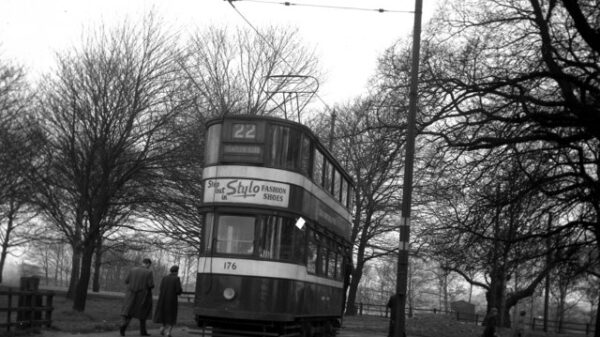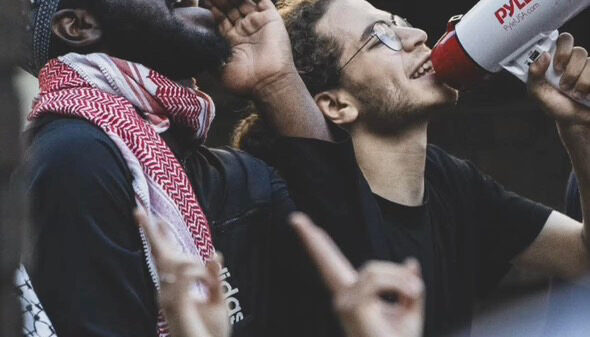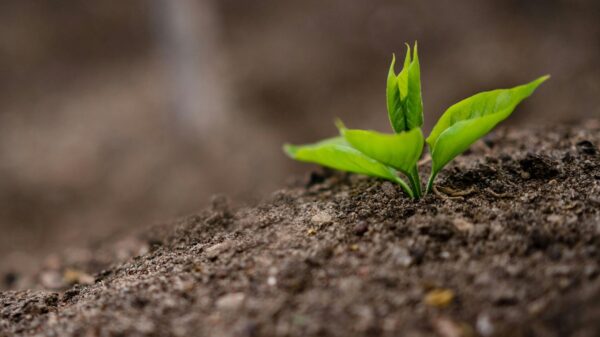Guest writer Jemima Longcake discusses her experience working as a Youth Speaker with Greenpeace and her passion for intersectional activism.
How It Started
As a child I remember reading books like Dear Greenpeace, child friendly stories about conservation, and social action. The power of social action, and the importance of environmental conservation were commonplace in my childhood, growing up in the Lake District. Iconic groups like Greenpeace were often sources of inspiration for me, and so having the opportunity to work with them as an individual has been a space for learning, teaching, and reflection. When a friend told me about the opportunity to become a speaker for Greenpeace almost a year ago, my prior interest meant that I was instantly intrigued. I was in Seven Dials when the email came through one morning, and I sat down in a coffee shop to apply.
My Background
I have been engaging in intersectional activism since 2019, having grown up with a profound understanding of each person’s universal social responsibilities, a civic ethos keenly cultivated by my mother. Intersectional activism refers to change-making and education around the intersections of different issues with the acknowledgment that no social dilemma is a stand-alone concept, instead existing as part of a deeply interconnected web of actors and events. In 2019, I founded and became CEO of CASTLE (Community Activists Saving The Little Earth, formerly KASTLE). CASTLE is a community-led global activism project participating in international education schemes and forming national campaigns. CASTLE now sits under the umbrella of JLPrxjects, a currently semi-dormant organisation comprised of several other branches seeking to make change in creative and conscious ways. Through my work with the organisation I have had the opportunity to speak at events including COP, MockCOP, and TEDx. I’ve also had the opportunity to work within an array of disciplines to create change, garnering 100,000 views across platforms for work including a film, published book, original music, and broad content creation. It is also the work that brought me to my current opportunity with Greenpeace.
Greenpeace’s Background
As well as their education and promotional work done by speakers and youth speakers, Greenpeace has a long history of campaigns and direct action. Launched in Canada in the 1970s, Greenpeace made waves as a non-violent direct action organisation and charity seeking to tackle ecological crises across the globe. The organization seeks to tackle deforestation, plastic pollution, and biodiversity loss through petitions, advertising campaigns, educational talks, and public action. Whilst I don’t represent Greenpeace beyond collaborating with the group when giving talks on specific issues, I always appreciate the opportunity to work alongside such a prestigious organisation, drawing on shared knowledge to help individuals make empowering and accessible choices around global social issues.
Changing Activism – outreach and hope
I am a firm believer that activism as a whole, particularly climate activism, must be accessible in its outreach, and rooted in a narrative of hope.
A few weeks after applying I saw this in action at Greenpeace. My application to become a new Youth Speaker with the NGO was successful, and I headed up to Greenpeace’s Islington headquarters for an onboarding training day with fellow speakers from all over the country. It has been a joy working with such a diverse mix of people, with their own unique links to London and the rest of the UK. Since then I’ve made sure to hold onto that initial link between The Lakes and London, both in delivering talks, in the content reference, and the ethos with which I work.
Accessible outreach:
One reason I wanted to apply to Greenpeace was the way the role’s focus on accessible education fit so well with my current ethos on social change. After years of renewed energy for direct action, disruption tactics, and protest culture, I had been starting to move away from this style of activism. Typically in my work I refer to this as panic driven, due to the way it can often instil a fight or flight reaction in viewers and participants, with an immediacy that is at times helpful, but oftentimes unsustainable for long-term change. I instead aim to focus on more hope driven change making, such as educational talks and workshops. This is something that Greenpeace really supports in their speakers, encouraging complex discussions with all ages and backgrounds to be had through creative and accessible talks. This could be in the form of an assembly to a primary school with interactive games and quizzes, a lecture to a university group, or a talk with a law firm to encourage environmental awareness.
Narratives:
Moreover, as I mentioned previously, I always seek to work with an ethos of intersectionality and hope, rather than a panic-driven narrative. For example, meaningful efforts to prevent climate change cannot succeed without simultaneously addressing global inequity in resource distribution, which invariably disadvantages those most impacted by the effects of global warming; here the overlapping issues of global economic inequalities and climate change come together. Greenpeace’s wholehearted embrace of a collaborating, interconnected, and intersectional focus has definitely been one of the best features of this project.
Take Aways
Are you part of a group which you think would enjoy a Greenpeace talk? Or perhaps you want to be involved in making change in your area? You can get involved too. Greenpeace and other organisations regularly onboard new members, volunteers, supporters and collaborators. Visit their website to learn more about what they do and how you can get involved either through Greenpeace, another organisation or on an independent level.

















